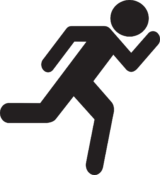What Happens During a Doctor’s Visit for a Head Injury? 🤕
Head injuries can be frightening, both for the person experiencing them and their loved ones. Whether it’s from a sports mishap, a fall, or an unexpected accident, knowing what to expect during a doctor’s visit for a head injury can ease some of the anxiety. Let’s dive into the details to ensure you’re informed and prepared.
Table of Contents
1. The Initial Assessment 🩺
2. Diagnostic Tests and Procedures 📋
3. Treatment Options and Recommendations 🚑
4. Follow-Up Care and Monitoring 📅
5. Conclusion
The Initial Assessment 🩺
When you arrive at the doctor’s office or emergency room, the initial assessment is crucial. The medical team will evaluate the severity of the head injury. They might ask questions like:
“How did the injury occur?” or “Have you experienced loss of consciousness?”
This helps them determine the immediate steps to take. They’ll check vital signs and may perform a neurological exam to assess reflexes, coordination, and cognitive function.
Diagnostic Tests and Procedures 📋
Depending on the initial findings, your doctor might order diagnostic tests to get a clearer picture of the injury. Common tests include:
🧠 CT Scan: A quick imaging test that provides detailed pictures of the brain. It’s often used to detect bleeding or swelling.
📸 MRI: This test offers detailed images of soft tissues, which can be helpful in diagnosing more subtle injuries.
🩸 Blood Tests: These might be done to rule out any underlying issues that could complicate the head injury.
Treatment Options and Recommendations 🚑
Treatment varies depending on the severity of the head injury:
🛌 Rest: For minor injuries, rest and monitoring at home might be recommended.
💊 Medications: Pain relievers or medications to reduce swelling may be prescribed.
🏥 Hospitalization: Severe injuries might require hospital admission for closer observation and care.
Your doctor will provide specific instructions tailored to the injury’s nature. It’s essential to follow these recommendations closely to ensure a swift recovery.
Follow-Up Care and Monitoring 📅
After the initial treatment, follow-up care is crucial in ensuring the injury heals properly. Your doctor might schedule a follow-up visit to monitor progress and adjust care as needed. They might also recommend seeing a specialist, like a neurologist, if ongoing symptoms persist.
It’s important to watch for any new or worsening symptoms such as persistent headaches, dizziness, or difficulty concentrating, and report them to your healthcare provider promptly.
Conclusion
Understanding what happens during a doctor’s visit for a head injury can empower you to navigate the process with confidence. From the initial assessment to follow-up care, each step is vital in ensuring a safe and effective recovery. Remember, when in doubt, always consult with your healthcare provider. Stay safe and take care! 🌟
FAQ
Q: What should I do immediately after a head injury?
A: Seek medical attention promptly, especially if there’s a loss of consciousness, severe headache, or vomiting.
Q: How long does it take to recover from a head injury?
A: Recovery time varies depending on the injury’s severity, ranging from days to weeks or even longer for more severe cases.
Q: Are there long-term effects from a head injury?
A: Some head injuries can have long-term effects, such as memory issues or mood changes, which should be discussed with a doctor.
Q: Can I prevent head injuries?
A: While not all head injuries are preventable, wearing helmets during sports, ensuring home safety, and using seat belts can significantly reduce risk.

